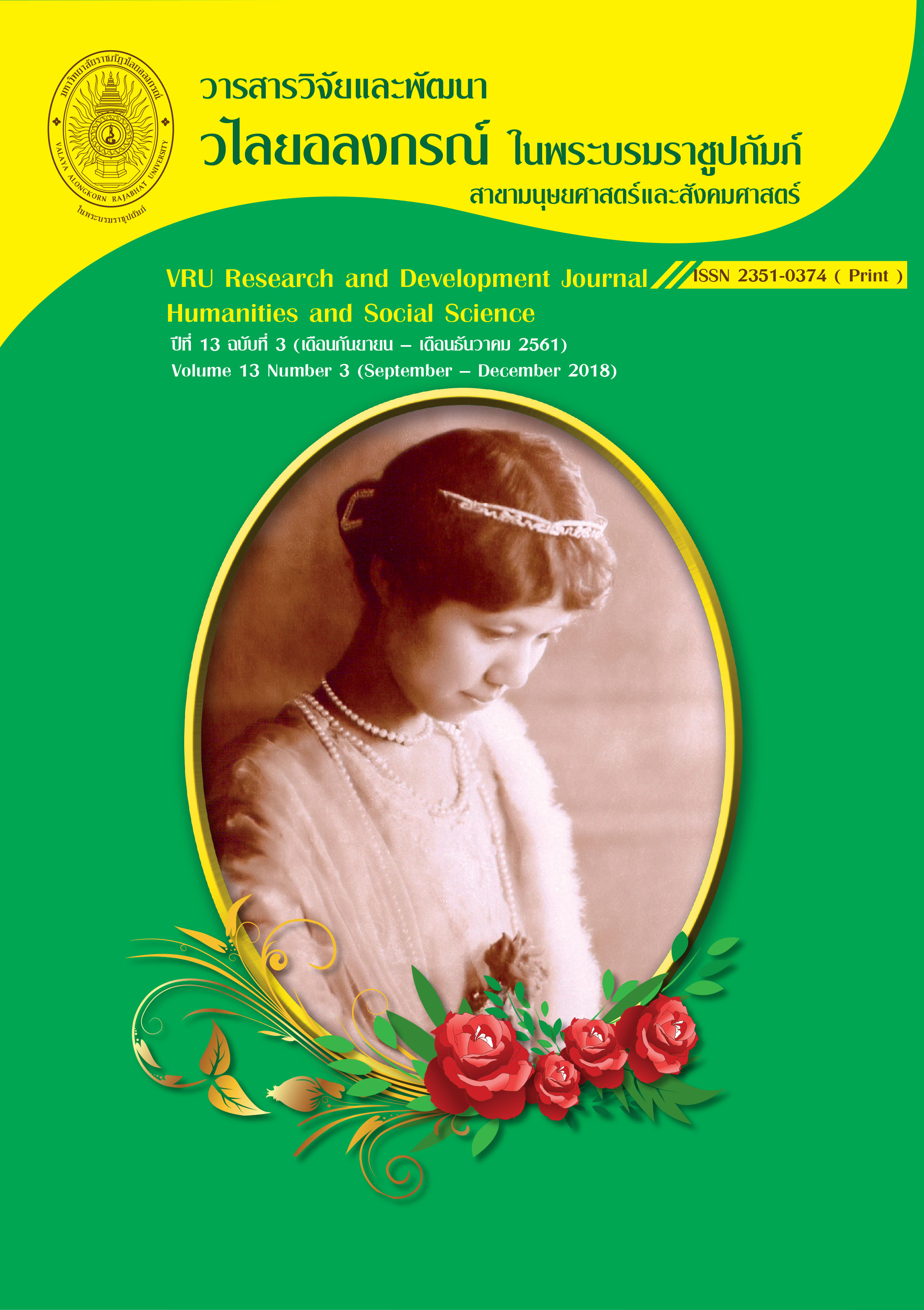THE PARTICIPATION OF THE COMMUNITY IN CULTURAL AND ENVIRONMENTAL CONSERVATION FOR SUSTAINABLE TOURISM. CASE STUDY IN SAMPHANTHAWONG DISTRICT BANGKOK
Main Article Content
Abstract
This research aims to know. 1) To study The Participation of the community in cultural and environmental conservation for sustainable tourism. 2)To study problems and obstacles of the Participation of the community in cultural and environmental conservation for sustainable tourism. This research is a mixed method research to a combination of qualitative research was mainly and quantitative research was concurrently.The Informants included officials, community leaders, and samples from the public in Samphanthawong District Bangkok. The instruments used in research, questionnaires and interviews, presented by descriptive.
Participation in the conservation of culture and environmentof the community for sustainable tourism revealed that the decision-making process: People in the community are more interested in making decisions.Analyze the problems andneeds of people in the community. Project Implementation: See that people participate in the project. And participate in community activities related to the conservation of culture and the environment of the community. The Benefit: People in the community are the main beneficiaries in the economy, from tourists to shopping and visiting the community. Project Evaluation: People's participation is low.
The problems and obstacles of participation in the conservation of culture and environment of the community for sustainable tourism are problematic in the decision process. The decision-making process is not based on the proposals made by the community itself. But the information from the government. Lack of presentation of views from the community sector. The problem of project implementation is budget allocation. Lack of publicity and continuity of project implementation. The problem is the lack of membership. Or establish a definite club. The project evaluation problem was The community does not fully understand the process of tracking and evaluating. Therefore, the community is not interested in participating in the evaluation of the activities held.
Article Details
ลิขสิทธิ์บทความวิจัยที่ได้รับการตีพิมพ์เผยแพร่ในวารสารมนุษยศาสตร์และสังคมศาสตร์ วไลยอลงกรณ์ ในพระบรมราชูปถัมภ์ ถือเป็นกรรมสิทธิ์ของคณะมนุษยศาสตร์และสังคมศาสตร์ มหาวิทยาลัยราชภัฏวไลยอลงกรณ์ ในพระบรมราชูปถัมภ์ ห้ามนำข้อความทั้งหมดหรือบางส่วนไปพิมพ์ซ้ำ เว้นแต่จะได้รับอนุญาตจากมหาวิทยาลัยเป็นลายลักษณ์อักษร
ความรับผิดชอบ เนื้อหาต้นฉบับที่ปรากฏในวารสารมนุษยศาสตร์และสังคมศาสตร์ วไลยอลงกรณ์ ในพระบรมราชูปถัมภ์ เป็นความรับผิดชอบของผู้นิพนธ์บทความหรือผู้เขียนเอง ทั้งนี้ไม่รวมความผิดพลาดอันเกิดจากเทคนิคการพิมพ์


